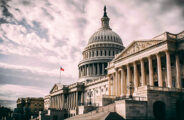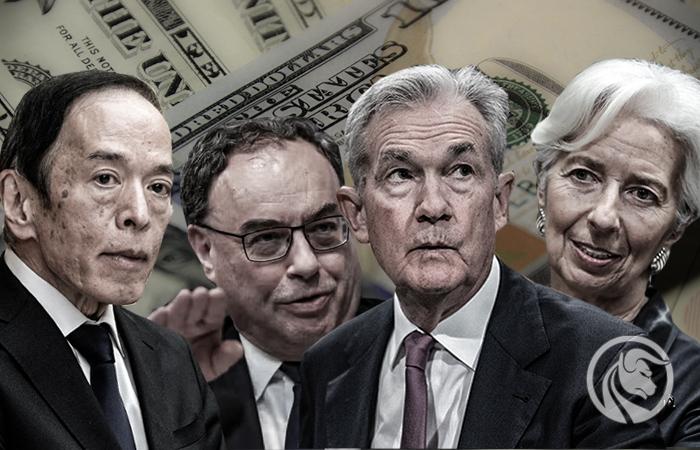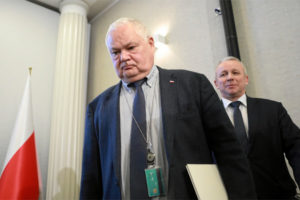Central banks will not give up in the fight against (consumer) inflation
In the face of high inflation, central banks around the world continue to tighten their monetary policy. Christine Lagarde, president European Central Bank (ECB), has suggested that the ECB is likely to raise interest rates in July if underlying assumptions remain unchanged. Lagarde stressed that the bank did not see enough evidence of stabilization and decline in inflation, especially in domestic prices.
Meanwhile, Andrew Bailey, governor Bank of England, stressed that the UK economy turned out to be more resilient than predicted. Bailey defended the Bank of England's decision to raise interest rates higher than expected, stressing that politicians would continue their efforts to bring inflation down to the 2% target.
Monetary policy in the United States and Japan
Jerome Powell, chairman Federal Reserve of the United States, did not rule out raising interest rates at subsequent meetings. Powell noted that the central bank has yet to make any decisions regarding future meetings and the path of monetary policy.
And Kazuo Ueda, the governor Bank of Japan, noted that Japan's core inflation rate still remains above the 2% target set by the central bank. Ueda hinted that a change in the bank's monetary policy may be on the horizon, depending on future inflation projections.
The future of monetary policy
Andrew Bailey predicts that inflation in the UK will fall significantly this year. On the other hand, Christine Lagarde from the ECB noted that the data did not indicate a strong recovery and economic growth looked more like economic stagnation.
Jerome Powell of the Federal Reserve stressed that "the passage of time" is not a friend of the central bank. He added that the longer inflation remains high, the greater the risk of inflation becoming entrenched in the economy.
Meanwhile, the chief economist of the European Central Bank, Philip Lane, said in an interview with CNBC aired Wednesday that it was necessary to keep interest rates tight for a longer period of time for inflation to reach the bank's target of 2%.
Lane stressed that the ECB would need to raise interest rates further, noting that another hike in July would be reasonable but pointing out it was too early to say what the bank should do in September.
In turn, Francois Villeroy de Galhau, a member of the ECB, stated that interest rates are close to the levels required to bring inflation in the euro area back to the 2% target set by the ECB. Villeroy suggested that it was more important to determine how long the ECB would keep rates elevated than their actual level due to delays in monetary policy transmission.
Inflation is already demand, not cost
Central bankers note that inflation is no longer cost-inflation, and it is mainly driven by demand, which still has no intention of reducing its spending, despite the increase in interest rates. In theory, higher interest rates should encourage saving, which is not happening on a large scale at the moment. Thus, for the time being, central banks have no choice but to announce further rate hikes until demand is suppressed.
The ultimate weapon in the fight against inflation is to make the economic conditions so difficult that they cause an increase in the unemployment rate, which most effectively suppresses demand. However, that didn't happen.






















![Forex Club – Tax 9 – Settle tax on a foreign broker [Download the Application] Forex Club - Tax 9](https://forexclub.pl/wp-content/uploads/2024/02/Forex-Club-Podatek-9-184x120.jpg?v=1709046278)
![Trading View platform – solutions tailored to the needs of traders [Review] trading view review](https://forexclub.pl/wp-content/uploads/2024/03/trading-view-recenzja-184x120.jpg?v=1709558918)
![How to connect your FP Markets account to the Trading View platform [Guide] fp markets trading view](https://forexclub.pl/wp-content/uploads/2024/02/fp-markets-trading-view-184x120.jpg?v=1708677291)
![CRB index – one of the popular commodity market benchmarks [Guide] crb index](https://forexclub.pl/wp-content/uploads/2024/05/indeks-crb-184x120.jpg?v=1715055656)
![How to invest in ChatGPT and AI? Stocks and ETFs [Guide] how to invest in chatgpt and artificial intelligence](https://forexclub.pl/wp-content/uploads/2023/02/jak-inwestowac-w-chatgpt-i-sztuczna-inteligencje-184x120.jpg?v=1676364263)






![Izabela Górecka – “Success on the market depends not only on knowledge, but also on emotional stability” [Interview] Izabela Górecka - interview](https://forexclub.pl/wp-content/uploads/2024/04/Izabela-Gorecka-wywiad-184x120.jpg?v=1713870578)
![WeWork – the anatomy of the collapse of a company valued at $47 billion [WeWork, part II] wework bankruptcy story](https://forexclub.pl/wp-content/uploads/2024/04/wework-bankructwo-historia-184x120.jpg?v=1711729561)
![Adam Neumann – the man who screwed up Softbank [WeWork, part AND] adam neumann wework](https://forexclub.pl/wp-content/uploads/2024/04/adam-neumann-wework-184x120.jpg?v=1711728724)

![The most common mistakes of a beginner trader - Mr Yogi [VIDEO] Scalping - The most common mistakes of a beginner trader - VIDEO](https://forexclub.pl/wp-content/uploads/2024/03/Scalping-Najczestsze-bledy-poczatkujacego-tradera-VIDEO-184x120.jpg?v=1711601376)
![Learning patience: No position is also a position - Mr Yogi [VIDEO] Scalping - Learning patience - No position is also a position - VIDEO](https://forexclub.pl/wp-content/uploads/2024/03/Scalping-Nauka-cierpliwosci-Brak-pozycji-to-tez-pozycja-VIDEO-184x120.jpg?v=1710999249)
![When to exit a position and how to minimize losses - Mr Yogi [VIDEO] Scalping - When to exit a position and how to minimize losses - VIDEO](https://forexclub.pl/wp-content/uploads/2024/03/Scalping-Kiedy-wyjsc-z-pozycji-i-jak-minimalizowac-straty-VIDEO-184x120.jpg?v=1710336731)


















